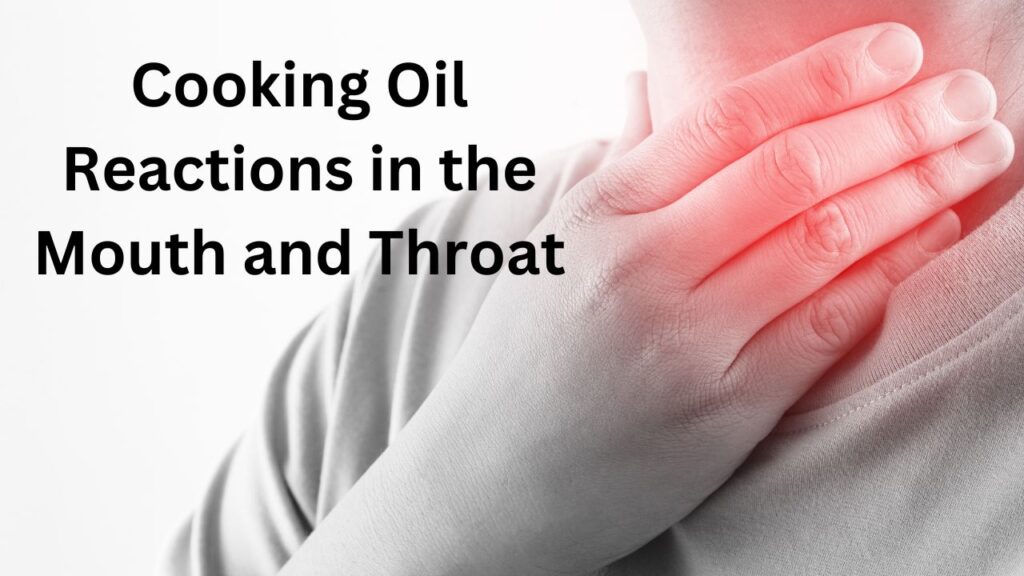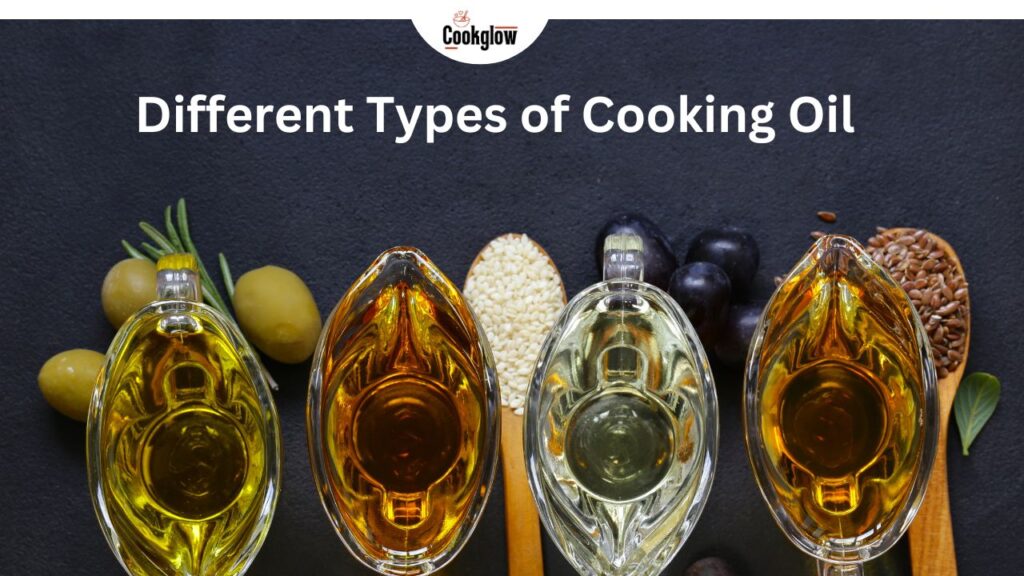
I know it sounds odd, but have you ever wondered what would happen if someone drank cooking oil? Maybe you’ve seen online myths claiming it’s a quick energy booster, a digestive aid, or even a weight gain trick. Or perhaps it was just a kitchen accident—one moment you’re reaching for a bottle of water, and the next, you’ve taken a gulp of vegetable oil.
Drinking cooking oil isn’t something most people do intentionally, but understanding what it does inside your body is important. How does your digestive system handle it? Could it be harmful? And are there any situations where consuming a small amount of oil might actually have benefits?
In this article, I’ll break it all down in simple, relatable terms about what happens if you drink cooking oil? We’ll explore how cooking oil affects your stomach, digestion, and overall health—both immediately and over time. Whether you’re curious, concerned, or just looking to separate fact from fiction, this guide will give you the answers you need.
Contents
- 1 What Cooking Oil Does Inside Your Body
- 2 Short-Term Health Risks of Drinking Cooking Oil
- 3 Long-Term Consequences of Consuming Cooking Oil Regularly
- 4 Different Types of Cooking Oil and Their Effects
- 5 Myths vs. Facts: Does Drinking Cooking Oil Have Any Benefits?
- 6 What to Do If Someone Drinks Cooking Oil Accidentally?
- 7 Safer Alternatives to Directly Drinking Cooking Oil
- 8 Conclusion
- 9 FAQ: What Happens If You Drink Cooking Oil?
What Cooking Oil Does Inside Your Body
When you drink cooking oil, your body doesn’t treat it the same way as water or juice. Instead, it goes through a complex digestive process designed to break down fats and absorb nutrients.
How the Digestive System Processes Oils
The moment oil enters your mouth, it coats your tongue and throat with a greasy texture. Unlike water, which is absorbed quickly, oil is hydrophobic, meaning it doesn’t mix well with bodily fluids. Your body has to work harder to break it down.
- Mouth and Esophagus: There are no enzymes in saliva that break down fats, so the oil moves through the esophagus largely unchanged.
- Stomach: Once it reaches the stomach, the oil triggers the release of digestive enzymes and bile from the gallbladder. These help emulsify (break apart) the fat molecules.
- Small Intestine: The pancreas releases lipase, an enzyme that further breaks down fats into fatty acids and glycerol, which are then absorbed into the bloodstream.
- Liver Processing: The absorbed fats travel to the liver, where they are either stored for later use or used immediately for energy production.
Absorption of Fats and Their Impact on Metabolism
Drinking oil provides a concentrated dose of fats, which are the most calorie-dense macronutrient. One tablespoon of cooking oil has around 120 calories!
- Short-Term Energy: Some fats, like medium-chain triglycerides (MCTs) in coconut oil, can be quickly converted into energy.
- Fat Storage: Excess fats get stored in adipose tissue (body fat) for future energy use.
- Metabolic Slowdown: If you consume too much fat at once, your digestion slows down, leading to discomfort, bloating, and possible weight gain.
Short-Term vs. Long-Term Effects of Ingesting Cooking Oil
- Short-Term: You may feel nausea, bloating, or an upset stomach within minutes to hours. Some people experience diarrhea because excess oil isn’t absorbed efficiently.
- Long-Term: Regular consumption of excessive cooking oil can lead to obesity, increased cholesterol levels, liver strain, and higher risks of heart disease.
Immediate Effects of Drinking Cooking Oil
Drinking cooking oil can trigger an immediate reaction in your body, and the effects largely depend on the type and amount of oil consumed. Some people might tolerate a small amount, while others may experience discomfort within minutes.

Potential Reactions in the Mouth and Throat
- Greasy, Coating Sensation: Oil is thick and coats the tongue, throat, and esophagus, leaving an unpleasant slick feeling.
- Difficulty Swallowing: Because oil is slippery and doesn’t mix with water, it can feel harder to swallow than regular liquids.
- Gag Reflex Activation: Some people may feel like gagging or coughing after drinking oil, especially if they weren’t expecting the texture.
Digestive Discomfort (Nausea, Bloating, and Diarrhea)
Once the oil reaches the stomach, it can cause several digestive issues:
- Nausea: The stomach struggles to break down large amounts of pure fat, leading to feelings of queasiness.
- Bloating: Oil slows digestion, causing a heavy, uncomfortable feeling.
- Diarrhea: Excess oil that isn’t absorbed properly can act as a natural laxative, leading to urgent bowel movements.
Possible Allergic Responses for Sensitive Individuals
Some people have allergies or intolerances to certain oils (e.g., nut oils or soy-based oils). Symptoms of an allergic reaction may include:
- Itching or swelling in the mouth
- Stomach cramps
- Difficulty breathing (in severe cases)
Short-Term Health Risks of Drinking Cooking Oil
Drinking a significant amount of cooking oil in one sitting can lead to immediate health risks. Here’s what could happen:
Risk of Stomach Upset and Vomiting
Your digestive system isn’t designed to handle large amounts of raw oil at once. The stomach may reject it, leading to:
- Intense nausea
- Acid reflux (burning sensation in the chest)
- Vomiting
Impact on Blood Sugar and Insulin Response
Fats don’t directly raise blood sugar, but consuming too much can slow down digestion and impact how your body processes other nutrients. If you have diabetes or insulin resistance, this could make blood sugar management more difficult.
Effects on Gut Health and the Microbiome
Your gut bacteria thrive on fiber and balanced nutrients. Drinking too much oil can disrupt digestion, leading to:
- Loose stools or diarrhea
- Poor nutrient absorption
- Gut microbiome imbalance
Long-Term Consequences of Consuming Cooking Oil Regularly
If someone drinks cooking oil regularly—either intentionally or accidentally—it can have serious long-term effects on overall health.
Increased Risk of Obesity and Heart Disease
Cooking oils are calorie-dense. Consuming too much can lead to:
- Rapid weight gain
- Increased fat storage
- Higher risk of obesity-related diseases (diabetes, hypertension)
Potential Liver Damage from Excessive Fat Intake
The liver plays a major role in fat metabolism. Too much oil consumption can cause:
- Fatty liver disease
- Inflammation and strain on the liver
- Increased toxin buildup
Impact on Cholesterol and Blood Pressure Levels
Not all oils are bad, but drinking unhealthy oils high in trans fats and saturated fats (e.g., hydrogenated vegetable oil) can:
- Increase LDL (“bad”) cholesterol
- Lower HDL (“good”) cholesterol
- Raise blood pressure, increasing the risk of heart attacks and strokes

Different Types of Cooking Oil and Their Effects
Not all oils are processed the same way in the body. Some have health benefits, while others can cause harm when consumed excessively.
| Type of Oil | Potential Effects |
| Olive Oil | May support heart health, but drinking too much can cause digestive upset. |
| Vegetable Oil | Often refined and high in omega-6, which can promote inflammation if consumed in excess. |
| Coconut Oil | Contains MCTs that provide quick energy but can raise LDL cholesterol. |
| Canola Oil | Low in saturated fat but often processed with chemicals. |
| Sunflower Oil | Rich in vitamin E, but excessive intake can lead to imbalances in fatty acids. |
Myths vs. Facts: Does Drinking Cooking Oil Have Any Benefits?
There are many claims about the benefits of drinking cooking oil, but not all of them are true. Let’s break down the myths and facts.
| Myth | Fact |
| Drinking oil helps with digestion. | Too much oil can actually slow digestion and cause bloating. |
| Oil is a good remedy for constipation. | Some oils (like castor oil) can work as a laxative, but regular cooking oil may cause diarrhea or discomfort. |
| It helps with weight gain. | While high in calories, drinking oil isn’t a healthy way to gain weight. Balanced nutrition is better. |
| Olive oil is safe to drink in large amounts. | Olive oil has health benefits, but excess consumption can lead to stomach discomfort. |
What to Do If Someone Drinks Cooking Oil Accidentally?
If someone accidentally drinks cooking oil, here’s how to handle the situation:
When to Seek Medical Help
- If they experience severe vomiting or diarrhea
- If they have difficulty breathing (possible allergic reaction)
- If they drank a large quantity and feel extreme discomfort
Home Remedies for Mild Cases
For small amounts, these steps can help:
- Drink warm water to help dilute the oil.
- Eat fiber-rich foods (like whole grains or vegetables) to help absorption.
- Avoid lying down immediately, as oil can trigger acid reflux.
Signs of Serious Complications Requiring Urgent Care
- Intense stomach pain
- Persistent nausea or vomiting
- Signs of an allergic reaction (swelling, breathing difficulty)
Safer Alternatives to Directly Drinking Cooking Oil
Instead of drinking oil directly, here are better ways to consume healthy fats:
| Alternative | Why It’s Better |
| Adding oil to salads or cooking | Allows for controlled intake with other nutrients. |
| Eating whole foods rich in healthy fats (avocados, nuts) | Provides fiber and additional nutrients. |
| Using oil-based dressings in moderation | Helps with flavor without excessive intake. |
| Taking omega-3 supplements | Offers targeted benefits without unnecessary oil consumption. |
Conclusion
So, what happens if you drink cooking oil? In short, it depends on how much and what type of oil you consume. A small amount might not do much harm, but drinking too much can lead to digestive discomfort, nausea, and even long-term health risks like obesity and liver damage.
If you’ve accidentally consumed oil, don’t panic—mild cases usually resolve on their own. However, regular consumption can lead to serious health issues. Instead of drinking oil, it’s best to incorporate healthy fats through balanced meals and proper cooking techniques.
At the end of the day, moderation is key. Cooking oil has its place in a healthy diet, but drinking it directly? Not the best idea!
FAQ: What Happens If You Drink Cooking Oil?
1. Can drinking cooking oil make you sick?
Yes, drinking cooking oil can cause nausea, bloating, diarrhea, and stomach discomfort. In large amounts, it can lead to more serious issues like acid reflux, vomiting, or even long-term health risks if consumed regularly.
2. What should I do if I accidentally drank cooking oil?
If you drank a small amount, drink warm water and eat fiber-rich foods to help digestion. Avoid lying down immediately to prevent acid reflux. If you experience severe stomach pain, vomiting, or an allergic reaction, seek medical help.
3. Can drinking cooking oil help with constipation?
Some oils, like castor oil, have laxative effects. However, regular cooking oil can cause digestive discomfort rather than providing reliable constipation relief. Eating fiber-rich foods is a safer and healthier option.
4. Is drinking olive oil healthy?
Olive oil has health benefits, but drinking it in large amounts isn’t recommended. Too much can lead to digestive issues and unnecessary calorie intake. It’s best consumed in moderation as part of meals.
5. Will drinking cooking oil help me gain weight?
Cooking oil is calorie-dense, but drinking it isn’t a healthy way to gain weight. It can lead to digestive problems and an unhealthy fat balance. Instead, focus on a nutrient-rich diet with whole foods.
6. Can drinking oil damage my liver?
Excessive oil consumption over time can contribute to fatty liver disease, especially if the oil is high in unhealthy fats. Moderation and a balanced diet are key to liver health.
7. Does drinking oil help with digestion?
Contrary to popular belief, drinking oil doesn’t necessarily aid digestion. In fact, consuming too much at once can slow digestion, leading to bloating and discomfort.
8. What happens if a child drinks cooking oil?
If a child drinks a small amount, they may experience mild digestive discomfort. However, if they consume a large amount or show signs of distress (vomiting, diarrhea, difficulty breathing), seek medical attention immediately.
9. Are some oils safer to drink than others?
Oils like olive oil and coconut oil contain beneficial fats, but drinking them in large quantities can still cause digestive upset. It’s best to use them in cooking or salad dressings rather than consuming them straight.
10. How much cooking oil is safe to consume daily?
For a healthy diet, most experts recommend limiting oil intake to around 1-2 tablespoons per day, depending on your dietary needs and overall calorie intake. Always prioritize balance and moderation.

